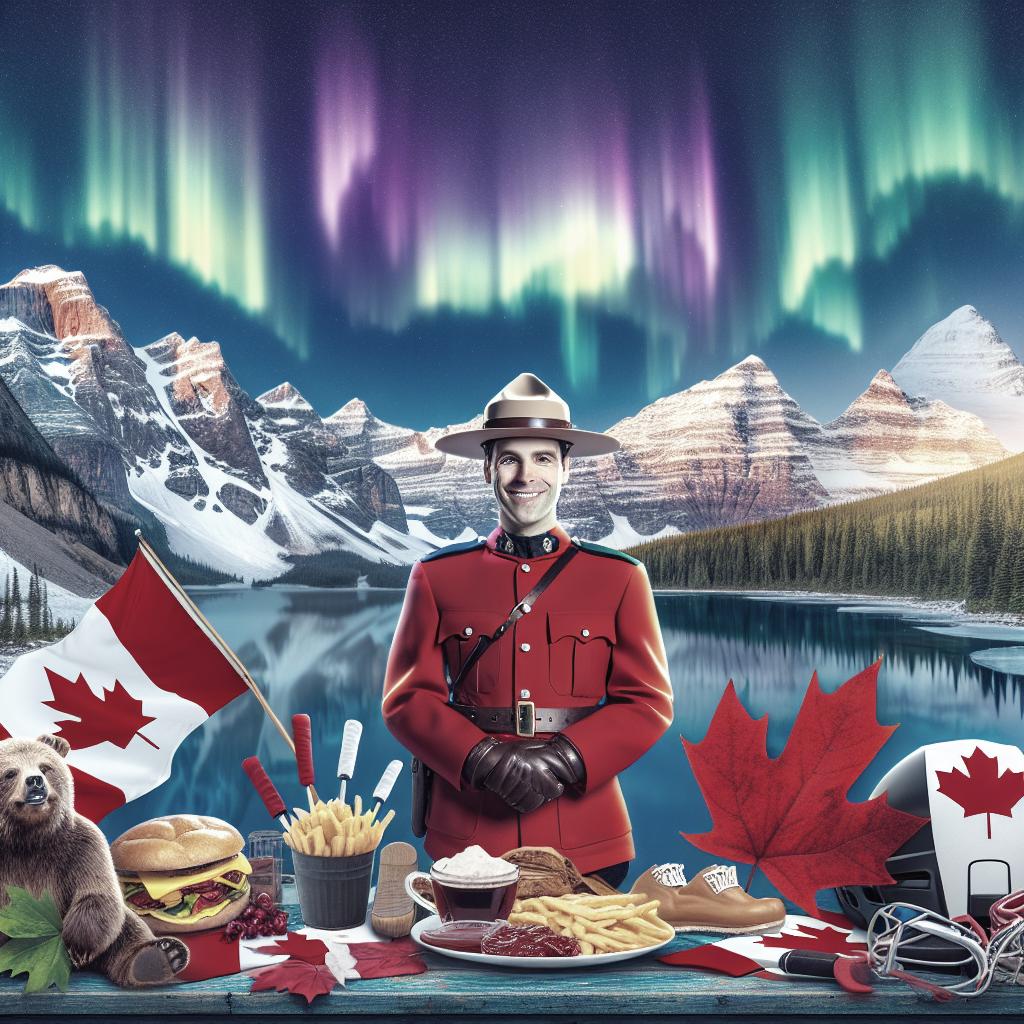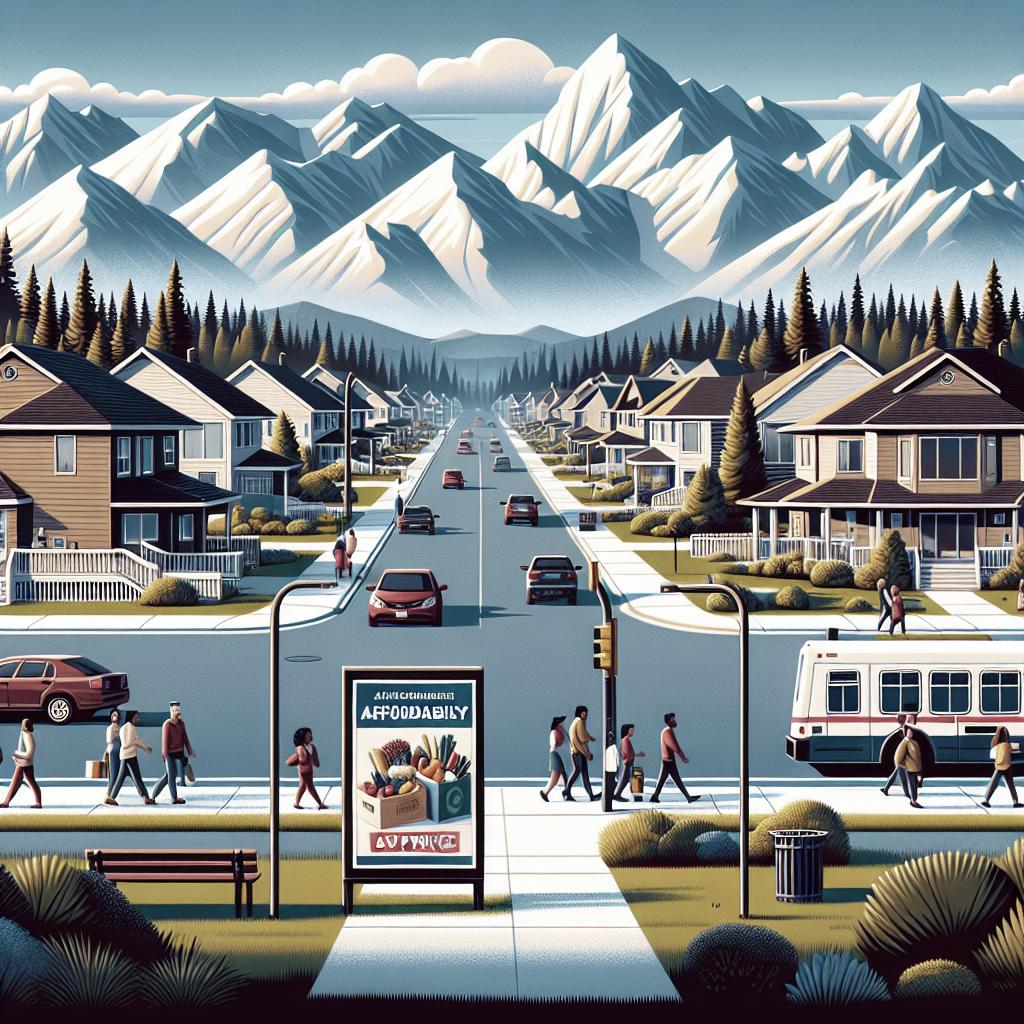“`html
What is Canada known for?
Canada, the second-largest country in the world, is celebrated for its diverse landscapes, rich culture, and hospitable people. Renowned for its natural beauty and historical heritage, Canada offers a unique blend of modern living and untouched wilderness. This blog post dives into the various aspects that make Canada a noteworthy nation, covering everything from maple syrup, Tim Hortons, and the Canadian Rockies to ice hockey, marijuana legalization, skiing, and poutine. We will also explore the significance of its Indigenous peoples, the stunning exhibitions of Northern Lights, the iconic Royal Canadian Mounted Police, and the country’s vast network of national parks. Moreover, we’ll touch upon Canada’s welcoming stance on immigration and recent initiatives to attract skilled workers. Get ready to explore what makes Canada a truly exceptional place to live, visit, and admire.
Maple syrup
When it comes to maple syrup, Canada stands as the undisputed champion. Almost 80% of the world’s maple syrup comes from Canada, most notably from the province of Quebec. Harvested from the sap of the sugar maple tree, this sweet treat has become a national symbol and a staple in Canadian cuisine. Canada’s maple syrup is not just a product but a tradition, deeply rooted in the country’s history and culture. Every year, visitors from around the world flock to Canada to experience a “sugar shack” or “cabane à sucre,” where they can see the maple syrup-making process first-hand. These huts showcase the art of transforming sap into syrup, alongside providing a cultural experience with traditional music and food. Enjoying maple taffy on snow or pancakes drenched in pure maple syrup is an experience that creates lasting memories.
Tim Hortons
No conversation about Canada is complete without mentioning Tim Hortons, the beloved coffee and donut chain founded by Canadian hockey player Tim Horton in 1964. With over 4,800 locations across Canada, Tim Hortons has become an essential part of everyday Canadian life. It’s almost impossible to walk down a Canadian street and not find a “Timmies” bustling with locals enjoying their double-doubles and Timbits. Beyond coffee and donuts, Tim Hortons has ingrained itself into the Canadian identity. It serves as a social hub where people gather to chat, work, and relax. The brand’s commitment to the community, from sponsoring children’s sports teams to hosting charitable events, further cements its place in Canada’s heart.
Canadian Rockies
The Canadian Rockies, a majestic mountain range spreading over 1,000 miles, captivates visitors with its breathtaking views and diverse outdoor activities. Located in British Columbia and Alberta, these mountains are famous for their rugged peaks, crystal-clear lakes, and abundant wildlife. Destinations like Banff and Jasper National Parks offer trails for hiking, camping sites, and ski resorts that attract adventurers and nature enthusiasts alike. The winter months transform this region into a snowy paradise, perfect for skiing, snowboarding, and snowshoeing. Visiting the Canadian Rockies offers an unrivaled experience, where one can escape the hustle and bustle of city life and immerse themselves in the serenity of nature.
Ice hockey
Ice hockey is more than just a sport in Canada; it’s a way of life. Regarded as the nation’s favorite pastime, hockey has deep roots in Canadian culture and history. The National Hockey League (NHL) originated in Canada, and many of the sport’s greatest players, like Wayne Gretzky and Sidney Crosby, hail from the Great White North. Canada’s passion for hockey is evident from the countless ice rinks in cities and small towns throughout the country. Whether it’s watching a high-stakes NHL game or participating in a local league, the love for hockey unites Canadians of all ages.
Marijuana legalization
In October 2018, Canada made global headlines by becoming the second country in the world to legalize recreational marijuana nationwide. This landmark decision reflects Canada’s forward-thinking approach to policy and public health. The legalization aims to reduce black market activity, ensure product safety, and provide a regulated framework for responsible usage. The economic benefits from marijuana legalization have also been significant, with increased tax revenues and the creation of new jobs. Moreover, it has opened avenues for scientific research on cannabis and its medicinal properties, positioning Canada as a leader in this burgeoning industry.
Skiing and snowboarding
Canada, with its extensive snowy landscapes and formidable mountains, has become a top destination for skiing and snowboarding enthusiasts. Areas such as Whistler Blackcomb in British Columbia and Mont Tremblant in Quebec offer world-class slopes and facilities that cater to both amateurs and seasoned pros. Ski resorts are not just about the slopes; they provide a full experience with cozy lodges, fine dining, and a vibrant après-ski culture. The scenic beauty coupled with meticulously maintained trails makes Canada a winter sports haven where one can enjoy exhilarating downhill runs and powder-filled adventures.
Poutine
If there’s one dish that epitomizes Canadian cuisine, it’s poutine. Originating from Quebec, poutine consists of crispy fries topped with cheese curds and smothered in savory gravy. This comfort food has gained international fame and has even been adapted into gourmet versions featuring additional toppings like pulled pork, truffle oil, and lobster. Poutine’s simple yet irresistible flavor makes it a must-try for anyone visiting Canada. Available in fast-food joints, high-end restaurants, and food trucks, this dish reflects Canada’s ability to take something humble and make it extraordinary.
Indigenous peoples
The history and culture of Canada’s Indigenous peoples are pivotal components of the nation’s identity. Comprising First Nations, Métis, and Inuit, the Indigenous populations have rich traditions, languages, and histories that have shaped Canadian history and modern society. Important cultural practices, like powwows, storytelling, and traditional craftsmanship, continue to thrive and are celebrated nationwide. Reconciliation efforts are ongoing to address historical injustices and build stronger relationships between Indigenous communities and other Canadians. Integrating Indigenous perspectives into education, policy, and governance is essential for creating a more inclusive and respectful society.
Wildlife
Canada is home to a diverse array of wildlife, thanks to its vast landscapes and varied climates. From grizzly bears and moose to beavers and bald eagles, the country’s fauna is as iconic as its geography. Wildlife enthusiasts flock to Canadian national parks and reserves for a chance to witness these magnificent animals in their natural habitats. The commitment to preserving wildlife is evident in Canada’s numerous conservation programs and protected areas. Whether it’s whale-watching off the coast of British Columbia or spotting polar bears in Churchill, Manitoba, Canada offers unparalleled opportunities for encountering wildlife.
Politeness
Canada’s reputation for politeness is well-deserved and often cited as one of the country’s most charming attributes. Canadians are known for their courteous demeanor, willingness to help, and respect for others. This polite culture fosters a welcoming and friendly environment, making Canada one of the most amiable countries in the world. The emphasis on politeness permeates everyday interactions, from holding doors open to offering apologies even in minor conflicts. This national trait not only enhances social harmony but also leaves a lasting impression on visitors.
Multiculturalism
Canada prides itself on being a multicultural mosaic, celebrating diversity in all its forms. The nation’s inclusive immigration policies have attracted people from all corners of the world, contributing to a rich tapestry of cultures, languages, and traditions. Cities like Toronto and Vancouver are melting pots of ethnic diversity where various communities coexist and flourish. Events such as the Toronto Caribbean Carnival and Vancouver’s Chinese New Year festivities highlight the vibrant cultural landscape of Canada. The country’s embrace of multiculturalism enriches its society, fostering an environment where diversity is both respected and celebrated.
Northern lights
The Northern Lights, or Aurora Borealis, offer a mesmerizing natural light display that can be seen in Canada’s northern regions. Yukon, Northwest Territories, and parts of Manitoba are prime locations to experience this awe-inspiring phenomenon, which is best viewed on clear, dark nights during the winter months. The dancing colors of the Northern Lights captivate viewers, creating a sense of wonder and connection with the natural world. This ethereal experience is a bucket-list attraction that draws thousands of tourists to Canada each year.
Royal Canadian Mounted Police (RCMP)
The Royal Canadian Mounted Police (RCMP), fondly known as the Mounties, is one of Canada’s most recognizable institutions. Established in 1873, the RCMP is both a federal and national police force, renowned for its distinctive red serge uniforms and wide-brimmed Stetson hats. The Mounties are emblematic of Canada’s law enforcement and are prominently featured in ceremonies, parades, and public events. The RCMP’s role extends beyond ceremonial duties; they are integral to maintaining law and order across Canada, particularly in rural and remote communities. Their emphasis on community engagement and respect for diversity exemplifies the values important to Canadians.
National Parks
Canada boasts an impressive network of national parks that showcase the country’s stunning natural beauty and biodiversity. From the towering peaks of Banff National Park in Alberta to the coastal splendor of Pacific Rim National Park Reserve in British Columbia, these protected areas offer a haven for both wildlife and outdoor enthusiasts. Visiting national parks in Canada provides an opportunity to engage in various activities such as hiking, bird watching, and kayaking. These parks play a critical role in conservation efforts, preserving ecosystems and species for future generations.
Craft beer
Canada’s craft beer scene has seen a remarkable surge in popularity over the past decade, with breweries popping up in every province and territory. From hoppy IPAs to rich stouts, Canadian craft breweries are known for their innovation and quality. Cities such as Vancouver, Toronto, and Montreal have become hotspots for craft beer enthusiasts, offering numerous brewpubs, festivals, and tasting events. Local breweries not only produce unique and flavorful beers but also support community initiatives and sustainable practices. The craft beer culture has become an integral part of Canada’s culinary landscape, inviting both residents and tourists to explore its diverse offerings.
Second-largest country
Canada, covering an area of nearly 10 million square kilometers, is the second-largest country in the world after Russia. This immense size offers a vast array of landscapes, from the Arctic tundra and Boreal forests to the Great Lakes and Rocky Mountains. The sheer scale of Canada means that there is always something new to explore, with each region offering its unique geographical and cultural characteristics. Being the second-largest country also means that Canada has a relatively low population density, which contributes to the sense of open space and tranquility found in many parts of the nation. This vastness is a defining feature of Canada’s identity, influencing its culture, economy, and way of life.
Diverse weather
Canada’s weather is as diverse as its geography, with climates ranging from the temperate coastal regions of British Columbia to the frigid Arctic North. While the country is often stereotyped for its cold winters, the climate varies significantly across regions. Summers can be quite warm, especially in southern areas, where temperatures often soar into the high 20s and 30s Celsius (80s and 90s Fahrenheit). This diversity in weather allows for a wide range of activities year-round. Whether it’s skiing and ice skating in the winter or hiking and swimming in the summer, Canada’s varied climate caters to all types of outdoor enthusiasts.
Canadian flag
The Canadian flag, featuring a red maple leaf flanked by two red bars on a white background, is a powerful national symbol embodying Canada’s identity and values. Adopted on February 15, 1965, the flag represents unity, peace, and the natural beauty of the country. The maple leaf, in particular, has been a symbol of Canada’s natural environment and its historical roots. The flag is prominently displayed during national holidays, international sporting events, and other significant occasions, fostering a sense of patriotism and pride among Canadians. It reflects the nation’s commitment to diversity, inclusivity, and respect for all its citizens.
Niagara Falls
Niagara Falls, one of the most famous natural wonders in the world, straddles the border between Canada and the United States. The Canadian side, known as Horseshoe Falls, is renowned for its breathtaking views and immense power, with over 168,000 cubic meters of water falling every minute. The falls attract millions of visitors each year who come to witness this awe-inspiring spectacle. In addition to the natural beauty, the area around Niagara Falls offers a plethora of activities, including boat tours, observation decks, and the vibrant Niagara Fallsview Casino Resort. The falls serve as both a tourist attraction and a source of hydropower, showcasing the intersection of natural wonder and human ingenuity.
Nicola Wightman
Nicola Wightman is a recognized Canadian environmentalist and an advocate for sustainable living. Her efforts to promote green initiatives and sustainable practices have garnered national attention. Wightman’s work primarily focuses on waste reduction, renewable energy advocacy, and environmental education. Through initiatives and public speaking engagements, she continues to inspire Canadians to adopt more sustainable lifestyles. Her contributions reflect Canada’s growing commitment to environmental stewardship, aligning with broader global efforts to address climate change and promote sustainability.
Canadian immigration
Canada has a long-standing reputation as an immigrant-friendly country, with inclusive policies that welcome newcomers from around the world. The country’s multicultural ethos and strong economy make it an attractive destination for people seeking better opportunities. Programs like Express Entry, Provincial Nominee Programs (PNPs), and family sponsorship ensure that a wide range of individuals can find their path to Canadian residency. Recent efforts have focused on attracting skilled workers to meet labor market needs and support economic growth. Initiatives aimed at integrating new immigrants into Canadian society include language training, employment services, and community support, fostering a welcoming environment for newcomers.
Alberta Welcomes Police Officers with New PR Program
Alberta has recently launched a new Permanent Residency (PR) program specifically aimed at attracting experienced police officers from around the world. This initiative addresses a growing need for law enforcement professionals in the province, particularly in rural and underserved areas. The program offers a streamlined immigration process, recognizing the skills and expertise that international police officers bring to the table. This new program not only helps fill critical roles within Alberta’s police services but also underscores the province’s commitment to ensuring community safety and supporting public service careers. By welcoming qualified police officers, Alberta aims to enhance its law enforcement capabilities and strengthen public trust.
209 Healthcare Professionals Invited in Ontario Draw
Ontario recently held a provincial draw inviting 209 healthcare professionals to apply for permanent residency. This draw, part of the Ontario Immigrant Nominee Program (OINP), reflects the province’s ongoing efforts to address healthcare shortages and improve medical services for its residents. The invited candidates include physicians, nurses, and medical technologists, whose expertise is critical for maintaining a robust healthcare system. By actively recruiting healthcare professionals through targeted immigration draws, Ontario ensures that its residents have access to high-quality medical care. This initiative also provides new opportunities for skilled immigrants to build their careers in Canada’s largest province.
109 Skilled Workers Get the Green Light in BC’s Latest PNP Draw
British Columbia continues to attract skilled workers through its Provincial Nominee Program (PNP), with the latest draw inviting 109 candidates to apply for permanent residency. These candidates span various sectors such as technology, healthcare, and engineering, reflecting BC’s diverse and dynamic economy. The PNP is designed to meet labor market demands by providing a pathway for talented professionals to contribute to the province’s growth. This initiative highlights British Columbia’s proactive approach to economic development and job creation. By embracing skilled immigrants, the province ensures that its industries remain competitive and innovative, benefiting both the local economy and the broader Canadian landscape.
Are you ready to start your application, or not sure which option is best for you?
| Aspect | Description |
|---|---|
| Maple syrup | Canada produces 80% of the world’s maple syrup, primarily in Quebec. |
| Tim Hortons | The iconic coffee and donut chain deeply ingrained in Canadian culture. |
| Canadian Rockies | Majestic mountains offering outdoor activities and stunning vistas. |
| Ice hockey | Canada’s national sport, with deep cultural roots and international fame. |
| Marijuana legalization | Canada’s bold move to legalize recreational marijuana in 2018. |
| Skiing and snowboarding | Top destinations for winter sports enthusiasts across Canada. |
| Poutine | Classic Canadian dish of fries, cheese curds, and gravy originating from Quebec. |
| Indigenous peoples | The rich traditions of First Nations, Métis, and Inuit in Canadian culture. |
| Wildlife | Diverse fauna including grizzly bears, moose, and eagles in Canada’s wilderness. |
| Politeness | Canada’s well-known reputation for courteous and respectful behavior. |
| Multiculturalism | Celebration of cultural diversity and inclusive immigration policies. |
| Northern lights | Awe-inspiring auroras visible in Canada’s northern regions. |
| Royal Canadian Mounted Police (RCMP) | Canada’s iconic federal police force, known for their distinct uniforms. |
| National Parks | Extensive network of protected areas showcasing natural beauty and biodiversity. |
| Craft beer | Growing craft beer industry with innovative breweries across the nation. |
| Second-largest country | Canada’s vast size, spanning nearly 10 million square kilometers. |
| Diverse weather | Varied climates ranging from temperate coasts to Arctic tundra. |
| Canadian flag | Symbol of unity featuring a red maple leaf. |
| Niagara Falls | Global landmark known for its powerful, breathtaking waterfalls. |
| Nicola Wightman | Environmental advocate promoting sustainable practices. |
| Canadian immigration |


